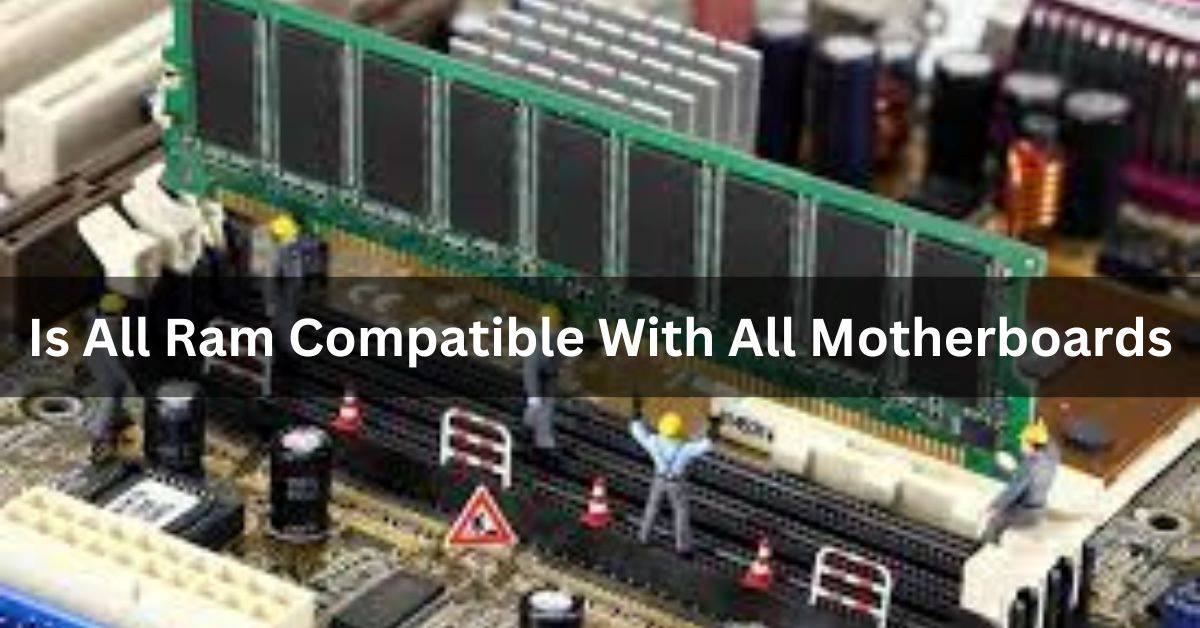In the realm of computer hardware, the compatibility between RAM (Random Access Memory) and motherboards is a crucial consideration for users seeking to upgrade or build their systems.
RAM, often referred to as memory, plays a vital role in the performance of a computer, while the motherboard serves as the central hub connecting various components.
No, not all RAM is compatible with all motherboards. It depends on factors like the type (e.g., DDR3, DDR4) and the motherboard’s supported RAM specifications. Compatibility varies.
In this article, we will discuss “Is All RAM Compatible With All Motherboards”.
What is RAM?
RAM stands for Random Access Memory. It’s a type of computer memory that stores data temporarily while the computer is running. It helps the computer process information quickly by providing fast access to frequently used data and programs.
Read: Are All Motherboards The Same Size – Ultimate Guide – 2024
What is a Motherboard?
A motherboard is the main circuit board in a computer. It holds the CPU, memory, and other essential components.
It also provides connections for peripherals like the mouse, keyboard, and monitor. Essentially, it’s the backbone that allows all parts of the computer to communicate.
What is RAM Compatibility?
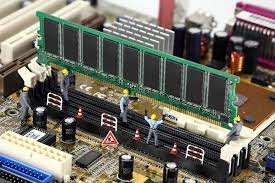
RAM compatibility refers to the ability of a memory module to function seamlessly with a specific motherboard. Compatibility issues may arise due to differences in memory type, capacity, speed, and motherboard specifications.
Not all RAM modules are universally compatible with all motherboards, making it necessary for users to research and select components carefully.
Read: Can You Use 8 Pin 4 Pin Motherboard – Complete Guide – 2024
Understanding Motherboard Compatibility:
Understanding motherboard compatibility involves knowing which components, like CPU, RAM, and graphics cards, work with a specific motherboard.
Compatibility ensures these parts fit physically and functionally, enabling optimal performance and avoiding issues like bottlenecking or incompatibility.
Read: Do Motherboards Come With Screws – Ultimate Guide – 2024
Factors Affecting RAM Compatibility with Motherboard:
1. RAM Type:
The type of RAM, such as DDR3, DDR4, or DDR5, must match the memory slots and specifications supported by the motherboard. Installing incompatible RAM can result in system errors or failure to boot.
2. Memory Speed:
The speed of the RAM modules must align with the supported frequencies of the motherboard. Mismatched speeds can lead to underperformance or instability.
Read: Do Motherboards Come With Bluetooth – Complete Guide – 2024!
3. Capacity:
Motherboards have limitations on the maximum amount of RAM they can support. Exceeding this capacity may render the additional memory unusable or cause system instability.
Read: Do Motherboards Have Bluetooth – Ultimate Guide – 2024
4. Motherboard Compatibility:
Different motherboards support specific RAM configurations, including form factors and voltage requirements. It’s crucial to consult the motherboard’s manual or specifications to ensure compatibility.
Read: Can Motherboards Bottleneck – The Ultimate Guide of 2024!
Understanding RAM Form Factors:
RAM modules come in various form factors, including DIMM (Dual In-Line Memory Module) and SO-DIMM (Small Outline Dual In-Line Memory Module). The form factor must match the memory slots on the motherboard for proper installation and functionality.
Read: Are Gigabyte Motherboards Good – Ultimate Guide – 2024
How to Check RAM Compatibility:
Before purchasing RAM modules, users should consult the motherboard’s documentation or visit the manufacturer’s website to verify compatibility.
Additionally, online tools and forums can provide insights into compatible RAM options based on the motherboard model.
read: What Graphics Cards Are Compatible With My Motherboard – Complete Guide!
DDR3 vs DDR4 Compatibility:
DDR3 and DDR4 are two common types of RAM used in modern computers. While DDR4 offers faster speeds and improved efficiency, DDR3 modules are not interchangeable with DDR4 slots due to differences in pin configuration and voltage requirements.
Read: Are Asrock Motherboards Good – Complete Guide of 2024!
ECC vs Non-ECC RAM Compatibility:
ECC (Error-Correcting Code) RAM is designed for servers and workstations requiring error detection and correction capabilities.
Non-ECC RAM, commonly used in consumer-grade systems, lacks these features. Motherboards must support the specific type of RAM chosen by the user.
Read: How Long Does A Motherboard Last – Complete Guide – 2024
Overclocking and RAM Compatibility:
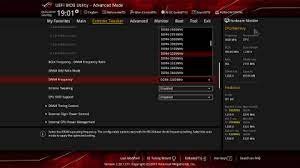
Overclocking RAM involves running it at speeds higher than the manufacturer’s specifications. While overclocking can enhance system performance, it may also introduce stability issues and void warranties. Users should ensure that both the RAM and motherboard support overclocking features.
Read: New Motherboard Wifi Not Working – Ultimate Guide – 2024
How RAM and Motherboard Interact?
RAM and motherboard work together by enabling data transfer between CPU and RAM. The motherboard manages this interaction by providing connections for RAM modules, facilitating smooth communication and data exchange for system operation.
Importance of RAM and Motherboard Compatibility:
RAM and motherboard compatibility is crucial for optimal system performance. Matching the right RAM type, speed, and capacity ensures stability and efficient data transfer, enhancing overall computer functionality and user experience.
Does every RAM fit every motherboard?
Not every RAM fits every motherboard. Motherboards have specific RAM slot types and supported memory configurations. It’s important to check the motherboard’s specifications to ensure compatibility with the RAM you intend to use.
Are all DDR4 RAM compatible?
Not all DDR4 RAM is compatible with every motherboard. While most modern motherboards support DDR4, compatibility can vary based on factors like memory speed, capacity, and voltage. It’s essential to check your motherboard’s specifications for compatibility before purchasing RAM.
Is my ram compatible with my motherboard?
To check if your RAM is compatible with your motherboard, consult the motherboard’s specifications. Look for details on supported memory types, speeds, and capacities. Compare this information with the specifications of your RAM to ensure compatibility before installing.
Can RAM work with any motherboard?
Yes, RAM can work with any motherboard as long as it matches the motherboard’s specifications, like type (DDR3, DDR4), speed, and capacity. It’s important to check compatibility before buying RAM for your computer.
What Motherboard Do I Have?
To find out what motherboard you have, you can check the system information in your computer settings or use software like CPU-Z. Another option is to physically examine the motherboard for its model number printed on it.
Can You Use 2 RAM Sticks From Different Vendors?
Yes, you can use two RAM sticks from different vendors as long as they have the same specifications like type (DDR3, DDR4), speed, and capacity. However, it’s ideal to use identical RAM sticks for optimal compatibility and performance.
Will all DDR4 RAM fit in motherboard?
Not necessarily. While most DDR4 RAM sticks will physically fit into a motherboard with DDR4 slots, compatibility also depends on other factors like the motherboard’s supported speed and capacity. Always check your motherboard’s specifications to ensure compatibility before purchasing RAM.
How do I choose the right RAM type and frequency for my motherboard?
To choose the right RAM type and frequency for your motherboard, check its specifications in the manual or online. Match the type (e.g., DDR3, DDR4) and ensure the frequency is supported. Consider your usage needs and budget for selecting the appropriate RAM.
Will any DDR4 RAM work with a DDR4 motherboard even the RAM part number isn’t listed on the motherboard’s list of supported memory?
Yes, generally DDR4 RAM should work with a DDR4 motherboard, even if the specific RAM part number isn’t listed on the motherboard’s supported memory list. Compatibility is primarily determined by the DDR4 standard they both follow.
Does every DDR4 motherboard work with all DDR4 type RAM?
No, not every DDR4 motherboard works with all DDR4 RAM. Compatibility depends on factors like the motherboard’s specifications and the RAM’s speed and voltage. It’s important to check compatibility before purchasing to ensure they work together.
What makes RAM not compatible with motherboard?
RAM may be incompatible with a motherboard due to differences in factors like memory type (e.g., DDR4), speed (e.g., 2400MHz), voltage (e.g., 1.2V), and physical configuration (e.g., DIMM or SO-DIMM). Mismatched specifications can lead to compatibility issues.
Can DDR4 ram fit into a DDR3 motherboard and be used?
No, DDR4 RAM cannot fit into a DDR3 motherboard. They have different physical designs and connectors. Using incompatible RAM can damage both the RAM and the motherboard. Always use the correct type of RAM for your motherboard.
Will 3200 m/s DDR4 RAM fit in any DDR4 motherboard?
Yes, 3200MHz DDR4 RAM should fit in any DDR4 motherboard that supports the same memory type. However, ensure compatibility with your motherboard’s specifications, as some may have limitations on supported RAM speeds.
Can you use a DDR4 RAM in a DDR3 RAM slot?
No, you cannot use DDR4 RAM in a DDR3 RAM slot. They have different physical designs and are not compatible. Attempting to do so may damage both the RAM and the motherboard. Always use the correct type of RAM for your system.
Does a DDR3 motherboard support DDR4 RAM?
No, a DDR3 motherboard does not support DDR4 RAM. They use different technologies and physical configurations, so DDR4 RAM cannot be used in a DDR3 motherboard. Always check compatibility before purchasing RAM for your system.
Is 8GB of DDR4 actually better than 16GB of DDR3?
In most cases, yes. DDR4 RAM tends to offer better performance and efficiency compared to DDR3. However, the overall benefit also depends on factors like the specific use case, system configuration, and requirements of the software being used.
Can a DDR3 RAM be used on a DDR4 motherboard?
No, DDR3 RAM cannot be used on a DDR4 motherboard. They are not compatible due to differences in physical design and technology. Attempting to use DDR3 RAM in a DDR4 motherboard can damage both the RAM and the motherboard.
Is all ram compatible with all motherboards laptop?
No, not all RAM is compatible with all motherboards or laptops. Compatibility depends on factors like the type of RAM (e.g., DDR3, DDR4), speed, voltage, and physical form factor. It’s important to check compatibility before upgrading or replacing RAM.
Will my DDR4 RAM work in a DDR2 supported motherboard?
No, DDR4 RAM will not work in a DDR2 supported motherboard. DDR2 and DDR4 are different types of RAM with incompatible physical designs and technologies. Attempting to use DDR4 RAM in a DDR2 motherboard will not be successful.
What RAM (Memory) Is Compatible With My Motherboard?
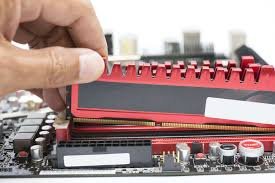
To know which RAM works with your motherboard, check its specs on the manufacturer’s site. Match RAM type (DDR3, DDR4), speed, and capacity with your motherboard’s requirements.
How Do I Know Which RAM Is Compatible With My Motherboard?
To find compatible RAM for your motherboard, check its specifications on the manufacturer’s website. Look for supported RAM types, speeds, and capacities. Match these with your RAM purchase.
Common Issues with RAM and Motherboard Compatibility:
Common issues with RAM and motherboard compatibility include mismatched frequencies, incompatible form factors (DIMM vs. SO-DIMM), and unsupported capacities. Always check the motherboard’s specifications before purchasing RAM to ensure compatibility.
Read: Do Motherboards Come with Standoffs – Ultimate Guide – 2024
Do I Need DIMM or SO-DIMM RAM Sticks For My Motherboard?
To determine if you need DIMM or SO-DIMM RAM sticks for your motherboard, check its specifications. Regular-sized desktops usually use DIMM, while laptops and small form-factor PCs use SO-DIMM.
Which DDR Generation Do I Need?
You should choose DDR generation based on your computer’s compatibility. DDR4 is common for newer systems, while DDR3 is for older ones. Check your device specs for compatibility.
Read: Can Old Motherboard Support New GPU – Ultimate Guide – 2024
How Much RAM Does My Motherboard Support?
To find out how much RAM your motherboard supports, check its specifications on the manufacturer’s website or user manual. These documents provide details about supported RAM capacities.
What Speed of RAM Do I Need?
The speed of RAM you need depends on your computer’s specifications and intended use. For most tasks, DDR4 RAM with speeds ranging from 2400MHz to 3200MHz is sufficient.
How Do I Make Sure My RAM Will Have Enough Clearance?
Ensure RAM clearance by checking your computer’s case specifications. Look for the maximum RAM height allowance. Also, consider the size of your CPU cooler and any additional components to avoid interference.
Read: Should I Connect HDMI to GPU or Motherboard – Complete Guide!
How to Use a System Checking Tool to Determine RAM and Motherboard Compatibility?
To determine RAM and motherboard compatibility, use a system-checking tool like CPU-Z or Speccy. These programs provide details about your hardware, including RAM type and motherboard model.
Does all RAM fit in to all motherboards?
No, not all RAM fits into all motherboards. Different motherboards support specific types and formats of RAM. It’s important to check compatibility before purchasing RAM.
Can any RAM work with any motherboard?
Not every RAM works with every motherboard. They need to match in terms of type (like DDR4), speed, and sometimes capacity for compatibility. Always check specifications.
How to Check RAM and Motherboard Compatibility?
To verify RAM and motherboard compatibility, consult the motherboard’s specifications online or in the manual. Match the RAM type (e.g., DDR3, DDR4), capacity, and speed with the motherboard’s requirements.
How do I know if my RAM is compatible with my motherboard?
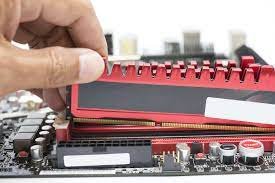
To check RAM compatibility with your motherboard, review the motherboard’s manual or specifications online. Ensure the RAM matches in type (e.g., DDR3, DDR4), capacity, and speed for proper functioning.
Make sure your memory is compatible with your motherboard?
Ensure your memory matches your motherboard’s specifications for type, capacity, and speed. Compatibility guarantees smooth functioning and prevents issues like system instability or failure to boot.
Can I use different RAM in my motherboard?
Yes, you can use different RAM in your motherboard as long as it is compatible with the motherboard’s specifications regarding type, capacity, and speed. Compatibility ensures proper functioning.
What happens if RAM is faster than Motherboard?
If RAM is faster than the motherboard’s supported speed, it will typically operate at the maximum speed supported by the motherboard. The excess speed capability of the RAM may not be utilized.
How do I check my motherboard RAM capacity?
To check your motherboard’s RAM capacity, you can refer to its manual, visit the manufacturer’s website, or use system information tools like CPU-Z or Speccy to identify hardware specifications.
Is All RAM Compatible With All Motherboard’s Laptop?
Not all RAM is compatible with all laptop motherboards. Compatibility depends on factors like RAM type (e.g., DDR3, DDR4), capacity, and speed, which must match the motherboard’s specifications for proper functioning.
Motherboard And RAM Compatibility Checker:
A “Motherboard and RAM Compatibility Checker” is a tool or software that helps users determine if their motherboard supports specific RAM modules, ensuring compatibility before purchasing or installing memory.
RAM Compatibility Chart:
A “RAM Compatibility Chart” is a visual guide showing which RAM modules are compatible with specific motherboards or systems. It helps users choose the right RAM for their computers.
Asus Motherboard RAM Compatibility:
“Asus Motherboard RAM Compatibility” refers to the ability of Asus brand motherboards to work with different types and brands of RAM modules, ensuring they function properly together in the computer system.
RAM Compatibility Checker Corsair:
A “RAM Compatibility Checker Corsair” is a specific tool provided by Corsair, a company that makes computer hardware, to help users identify compatible RAM modules for their systems.
RAM Compatibility Checker For Laptop:
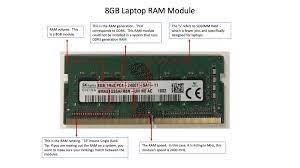
A “RAM Compatibility Checker for Laptop” is a tool or software that helps users determine which RAM modules are compatible with their laptop systems. It verifies compatibility for upgrading RAM.
FAQs:
1. Are all DDR4 desktop RAM modules compatible with all DDR4-compatible motherboards? Or are there any exceptions?
Most DDR4 desktop RAM modules work with DDR4-compatible motherboards. However, there might be exceptions due to factors like speed, capacity, and motherboard limitations. Compatibility depends on specific requirements.
2. Will any DDR4 RAM (desktop) work on any DDR4 motherboard?
Yes, most DDR4 RAM (desktop) will work on most DDR4 motherboards. However, it’s important to check the motherboard’s specifications to ensure compatibility before purchasing RAM.
3. Is there a DDR4 memory stick compatible with all motherboards?
No, there isn’t a DDR4 memory stick compatible with all motherboards. Compatibility depends on factors like the motherboard’s specifications and the type of RAM it supports. Always check compatibility before purchasing.
4. Will any DDR4 RAM work with any motherboard?
Yes, most DDR4 RAM will work with most motherboards. Just make sure the RAM type (DDR4) matches your motherboard’s specifications for compatibility.
5. If a motherboard accepts 2400 MHz DDR4 RAM, will it accept all DDR4 RAM, or only 2400MHz?
If a motherboard accepts 2400 MHz DDR4 RAM, it will generally accept all DDR4 RAM modules. However, they will operate at the maximum speed supported by the motherboard, which is 2400MHz in this case.
6. What is the compatibility of DDR4 motherboards with DDR4 modules/DIMM sockets?
DDR4 motherboards are compatible with DDR4 modules as long as they match in key specifications like speed, capacity, and voltage. The number of DIMM sockets on the motherboard determines how many DDR4 modules it can support simultaneously.
7. Are all DDR4 RAMs compatible with each other?
Not necessarily. While DDR4 RAMs share a common standard, compatibility can vary based on factors like speed, voltage, and timings. It’s essential to check compatibility with your motherboard and other system components.
8. If my motherboard supports DDR4 RAM, can I just put any DDR4 RAM into my PC?
If your motherboard supports DDR4 RAM, you need to ensure the specific DDR4 RAM module you choose is compatible with your motherboard’s specifications, including speed, capacity, and other factors.
9. Will any RAM work with any motherboard?
No, not all RAM will work with any motherboard. Compatibility depends on factors like the type of RAM (e.g., DDR3, DDR4) and the motherboard’s supported specifications. Compatibility varies between different models.
10. Will my DDR4 RAM on my desktop PC work on my DDR4 laptop?
No, DDR4 RAM designed for a desktop PC will not work in a DDR4 laptop. Laptop RAM modules are physically smaller and have different specifications to fit the requirements of laptop motherboards.
Conclusion:
In conclusion, understanding RAM and motherboard compatibility is essential for building or upgrading a computer. Not all RAM fits every motherboard; it depends on factors like type, speed, and capacity. Users must check their motherboard’s specifications and choose compatible RAM modules to ensure smooth performance. Proper research and matching components lead to a stable and efficient computer system. Compatibility matters for a hassle-free computing experience.
